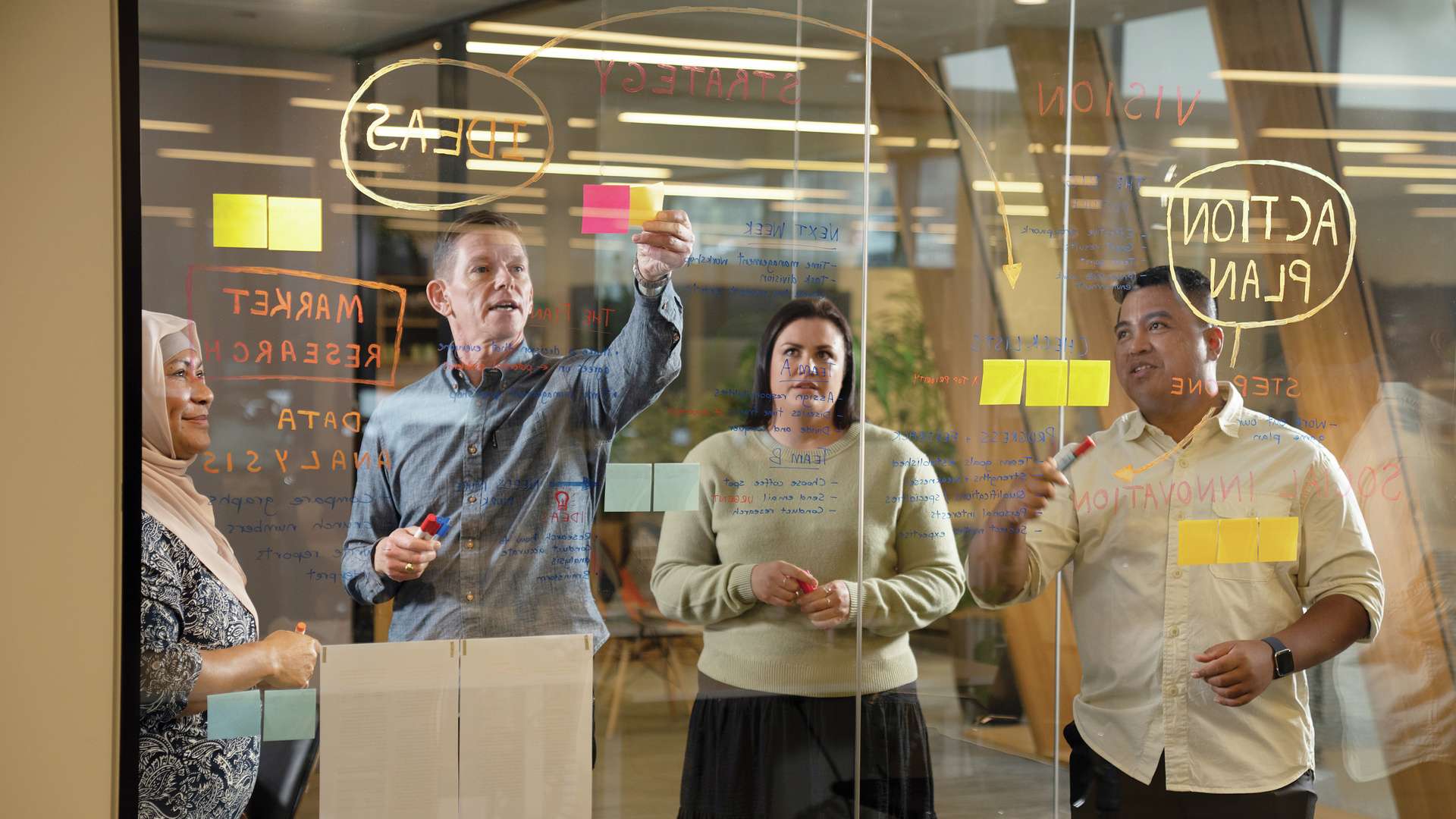
The Graduate Certificate in Social Innovation Leadership is ideal if you are an ambitious individual working in any field or discipline wanting to develop your capacity to lead and encourage social entrepreneurship, social intrapreneurial impact, and positive social change. Gain a strong foundational knowledge in social innovation, entrepreneurship, and leadership skills and study a range of topics including design thinking, disruptive innovation, group dynamics, innovation and entrepreneurship for leaders. This hyperflexible degree is not bound by term dates or submission deadlines, allowing you to study when and how it suits you.
The Graduate Certificate in Social Innovation Leadership is a multi-disciplinary course that equips you with a strong foundational knowledge about social innovation, entrepreneurship, and leadership skills.
You will study three units that prepare you to meet social challenges through the creative and sustainable development of new ideas, products, models or systems. You will be introduced to design thinking and collaborative ways of using an eco-system approach to resolve complex problems by offering ways of providing social benefit. You will gain an understanding of leadership in the context of entrepreneurship, examining the drivers and behaviours of people, group dynamics, and organisational and leadership processes. You will draw on theoretical frameworks and insights from the disciplines of management, human resources, sociology and psychology. You will develop a practical understanding of facilitating disruptive innovations and entrepreneurship within an organisation and creating market value. Your studies culminate with an innovation project which can be tailored to your workplace or interest area. You will prepare, design and implement a professional innovation project proposal to build contextual skills for designing and leading innovative projects with a social impact.
You will benefit from practical learning experiences throughout your studies, including case study analysis, real-world examples and your final project.
Designed for maximum flexibility, this course is entirely self-paced and 100% online. Access your course content on any device, anytime, and experience the ultimate flexibility and convenience.
The Graduate Certificate in Social Innovation Leadership focuses on building the professional capacity of managers and social entrepreneurs of the future across the corporate, government and third (not-for-profit) sectors. You will learn to lead organisations creating social and environmental value, developing your ability to operate in a changed cross-sector social landscape, where the dynamism of the market is also directed at social innovation. Specifically, as a graduate, you may seek employment in consulting and providing advice on business performance and improvements, including:
The course structure and available locations can change depending on when you want to study. You can choose the intake that best suits you in the drop-down menu below.
Designed for maximum flexibility, this course is entirely self-paced and 100% online. Access your course content on any device, anytime.
You must complete three units (24 credits):
The units you'll study are listed below. Click on a unit to learn more.
Students are required to complete a project that addresses a social problem in consultation with an organisation or social change group. Students may focus on challenges within their existing workplace, professional life or be involved in one of CQU's social innovation initiatives.
For your application to be considered, you must meet the following entry requirements.
While not needed to apply, you'll need to meet the following requirements throughout your studies.
This is an approximate cost of enrolling in this course, shown in Australian dollars (A$), for one academic year and is based on a full-time study load (8 units over 2 terms).
Your actual fees may vary, depending on the units that you select to study and your study load. Fees are reviewed each year and are subject to change.
Scholarships are not available for this course.
Please note there may be other costs involved apart from your tuition fee.
Our easy to use online application system for international students will guide you through the process of applying for a course at CQUniversity Australia.
This course is open for applications all year round and you can start your studies anytime.
CQUniversity Australia is a trading name of Central Queensland University
ABN: 39 181 103 288
RTO Code: 40939
CRICOS: 00219C
TEQSA: PRV12073